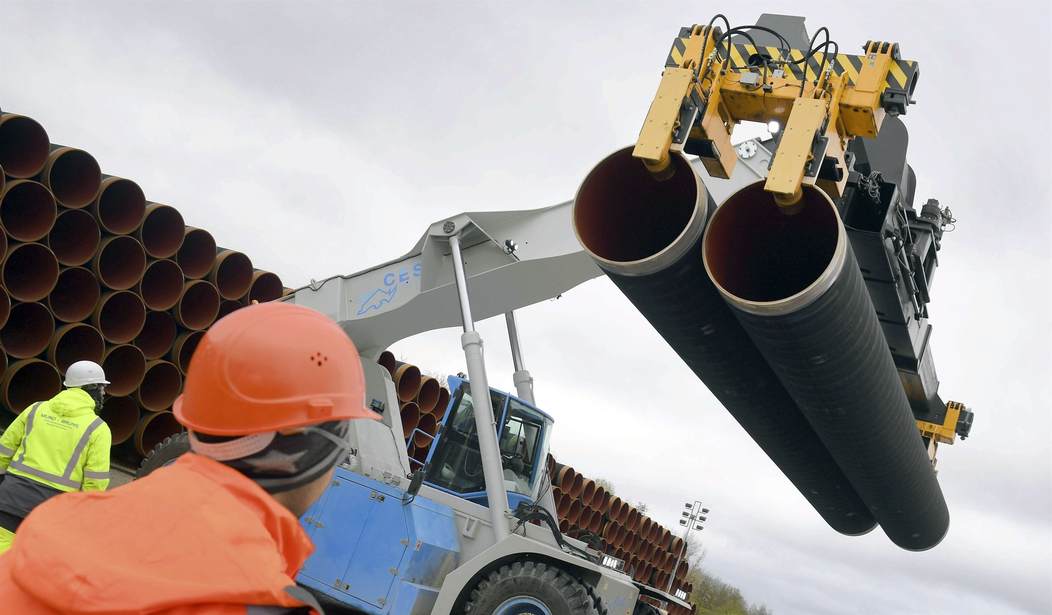We recently looked at all of the finger-pointing going on over the mysterious “leaks” that shut down the Nord Stream pipelines under the Baltic Sea. Most western leaders continue to suggest that Russia did it, though none are offering any hard evidence to support that claim. But economist Jeffrey Sachs, the Bloomberg TV host and director of The Earth Institute at Columbia University isn’t jumping on that bandwagon. Yesterday he told another host on the same network that most of the world believes that the pipelines were blown up in some sort of covert operation between the United States and Poland. The reason most Americans aren’t aware of this, at least according to Sachs, is that the possibility is almost never mentioned on American news networks. If you were watching the news in Europe or Asia, however, you would hear that opinion on a frequent basis. (Real Clear Politics)
A Bloomberg TV host pushed back against Columbia University economist Jeffrey Sachs on Monday when he suggested that the U.S. and Poland are probably behind the destruction of the Nord Stream pipeline.
“A lot of the world is watching these events in horror,” Sachs said. “They view this as a horrible clash between Russia and the U.S. They don’t see this, as we do in the media, as an unprovoked attack by Russia on Ukraine.”
“Most of the world doesn’t see it the way we describe it. Most of the world is just terrified right now, frankly,” he added.
You can watch that portion of the interview here. The comments about the pipeline come at around the five-minute mark, but the whole discussion is intriguing.
Sachs monitors media from inside Russia and many other countries. He describes the current situation (as viewed in other countries) as the world being on “the path of escalation to nuclear war, nothing less than that.”
Sachs is being accused of “taking Russia’s side” in this, but he argues that what we’re seeing in Ukraine isn’t just an unprovoked attack by Russia. The roots of this conflict go back much further. His sources in other parts of the world tell him that many nations have been uncomfortable with the rapid expansion of NATO to the east and what they want more than anything is to see the situation de-escalated.
The problem as Sachs sees it is that many of these countries rely on the United States for everything from trade to military defense. They don’t want to come out and criticize the United States openly, but they are also not strongly standing up for additional sanctions or potential military attacks on Russia. Most of the votes in favor of harsher measures against Russia come from the NATO block while the rest of the world is “staying on the sidelines.”
We’ve discussed the possibility of world war 3 here many times and it’s not hyperbolic in any way to suggest the possibility. As Sachs goes on to point out during the interview, it’s been sixty years almost to the day since the last time we were this close to a nuclear exchange. (The Cuban missile crisis.) And now we have Russia threatening to deploy tactical nuclear weapons and the NATO response has basically been to say, ‘you can’t scare us.’
Our closest allies remain in lockstep with us against Russia. But they don’t make up the entire world. On the other side, we have the new Axis of Evil, consisting of Russia, Iran, China, and North Korea, with Turkey sliding closer and closer to them. But beyond that, much of the rest of the world, particularly in Africa and the southern Pacific, seem to be holding their breath and simply praying that Russia and America don’t wind up turning the planet into a nuclear wasteland.
Is Sachs really that far off the mark here or hiding some secret sympathy for Russia? It’s an extremely complicated subject of course, but I wouldn’t write him off completely.








Join the conversation as a VIP Member